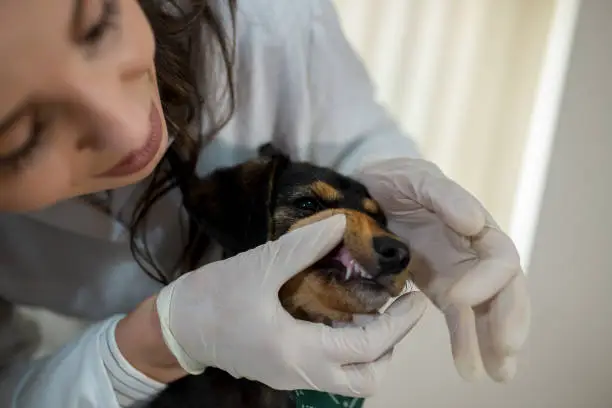
Pet owners often cherish the smiles of their furry companions, but beneath those pearly whites lies a crucial aspect of their well-being – dental health. Dental issues can affect pets just as they do humans, and the key to ensuring a happy and healthy life for your four-legged friend lies in early pet dental care.
Preventive medicine in veterinary care encompasses a broad range of measures, and dental care is a vital component of this approach. While vaccinations, parasite control, heartworm testing, and routine bloodwork are crucial aspects of keeping pets healthy, dental care plays a pivotal role in preventing a wide array of dental and systemic health issues.
Oral Examination Challenges
One of the primary reasons for emphasizing early dental care is the difficulty in performing a thorough oral examination on an awake patient. Pets may not always cooperate during these inspections, making it challenging for veterinarians to get a comprehensive view of their oral health. This means that early and subtle signs of oral disease can be easily missed, leading to more severe problems down the line.
Prevention Over Treatment
It’s a familiar adage in medicine that “an ounce of prevention is worth a pound of cure”, and this holds true for pet dental care as well. Preventing dental issues is not only more cost-effective but also spares your pet unnecessary pain and discomfort. Regular dental check-ups can help identify potential problems early, allowing for intervention before they escalate.
The Importance of Early Intervention
- According to the American Veterinary Dental College (AVDC), it is estimated that by the age of 3, about 80% of dogs have some form of periodontal disease.
- Small dog breeds are often more prone to dental problems due to their smaller jaw sizes and teeth that are crowded into a smaller space.
- According to the same organization, over 70% of cats have some form of dental disease by the age of 3.
- Cats, particularly older cats, are susceptible to dental problems such as gingivitis and tooth resorption.
Certain dental conditions, such as oral masses or cancers, highlight the importance of early intervention. These conditions often carry a better prognosis when addressed in their early stages, when they are small and localized. Early detection and treatment can significantly improve your pet’s chances of a full recovery.
Signs of Dental Problems to Watch For
While regular veterinary check-ups are essential, pet owners can also play a role in early dental care. Here are some signs that may indicate dental issues in your pet:
- Bad Breath: Persistent bad breath can be a sign of dental disease.
- Difficulty Eating: If your pet is avoiding food or having trouble chewing, it could indicate oral pain.
- Excessive Drooling: Increased drooling can be a sign of dental problems.
- Pawing at the Mouth: Pets may paw at their mouth if they have dental discomfort.
- Changes in Behavior: Watch for changes in behavior, such as irritability or reluctance to be touched around the mouth.
Taking Action for Your Pet’s Dental Health
So, what can you do to ensure your pet’s dental health is well-cared for? Here are some steps to take:
- Regular Check-ups: Schedule routine dental check-ups with your veterinarian. These appointments are vital for early detection and prevention.
- Professional Dental Cleanings: Your veterinarian may recommend professional dental cleanings to remove plaque and tartar buildup.
- Home Care: Ask your veterinarian about at-home dental care routines, including tooth brushing and dental chews.
- Be Observant: Pay attention to any changes in your pet’s behavior or signs of oral discomfort. Don’t hesitate to consult your veterinarian if you have concerns.
- Early Intervention: Understand the importance of early intervention, especially for conditions like oral masses or cancers. Early treatment can make a significant difference in your pet’s outcome.
Your pet’s dental health is an integral part of their overall well-being. By prioritizing early dental care, you not only contribute to their comfort and happiness but also enhance their chances of enjoying a longer, healthier life. Remember, your veterinarian is your best ally in ensuring your pet’s oral health, so don’t hesitate to reach out for guidance and support.
